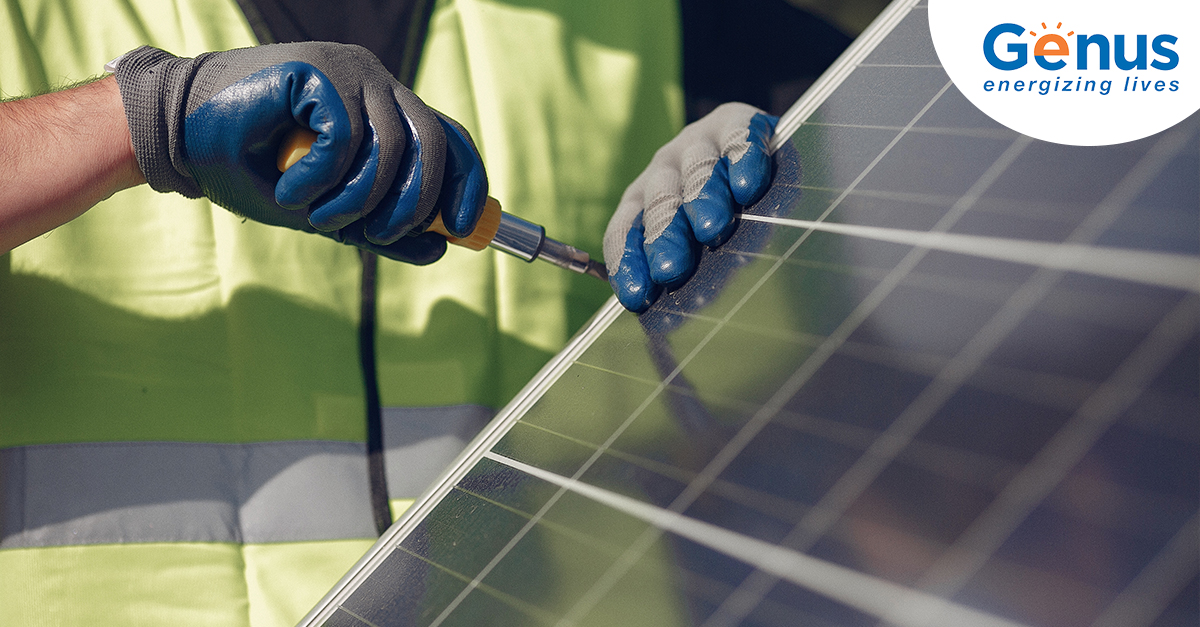
Solar energy is undoubtedly one of the cleanest energy resources available today. Although it still has not been able to match the energy outputs from the conventional sources, it does generate free electricity, unlike its counterparts. Luckily, lower solar panel safety concerns are another profitable aspect of utilising solar resources. Though solar sources are not as vulnerable as other energy sources, one must consider the possible dangers of solar panels before getting them. Let’s find out how to address the key solar safety issues:
Safety Tips for Solar Installation
Safety is one of the most important factors at the workstation. In most cases, people are unaware of the generic and specific safety measures that must be followed while installing a solar energy system. Following the safety protocols not only ensures the well-being of the workers but also improves the prospects of a long life for the system.
Here are Some Ways to Ensure Solar Panel Installation Safety:
- Regular monitoring of the health and fitness of the staff based on the nature of tasks they need to perform.
- Use of high-quality personal protective equipment (PPE) during the panel installation.
- The installation team must adhere to the use of PVC, cotton and leather gloves while setting up the electrodes.
Electric Shock from Energised Conductors
Like any other power generation system, even Photovoltaic systems have a potential risk of an electric shock. Electric shocks can result from a short circuit in corroded cables and connections, improper grounding and loose wiring. Thus, it is important to check the vulnerable spots in a PV system such as the PV source, combiner box, the equipment grounding conductor and the output circuit conductors. The grounding effect binds all metallic components and then connects them to the ground using a grounding electrode and a grounding electrode conductor.
Energy generated from PV string systems depends on solar radiation. It is advisable to shut these strings off during a power outage or a short circuit to minimise electric shock hazards.
Rapid Shutdown Facility
Having a rapid shutdown mechanism adds to the safety of the rooftop solar power system users. Popular solar inverters include automatic shutdown capability without the need for additional equipment. Automatic shutdown procedures get triggered when the alternating current (AC) to the inverters stops flowing. The above feature can be useful for a damaged home energy system. In this situation, the solar panels will automatically switch off, thus avoiding any probable hazards or damage. Besides, rapid shutdown mechanisms can prevent injury or harm to first responders in case of a fire at your home.
Preparedness for a Weather Event
While preparing for a cyclone, storm or flood event, it is important to adhere to the installers or the manufacturer’s shutdown procedures. Essentially, shutdown procedures or plugs should be located at or near the inverter or on the main switch. Here’s a guide to the general shutdown procedure:
- Shut down the inverter AC mains isolator which is generally found in the metre box.
- Switch off the PV array isolator which is generally found near the inverter.
- If there is a risk of water level reaching up to the cables and inverters, it is advisable to switch off the rooftop array isolator.
In case, you are unsure of the shutdown procedure, you can always contact your installer for help.
The above list includes some of the exclusive precautions to be taken; it is not an exhaustive set. It is important to adhere to the additional safety protocols that are specific to an installation type, location or method.
